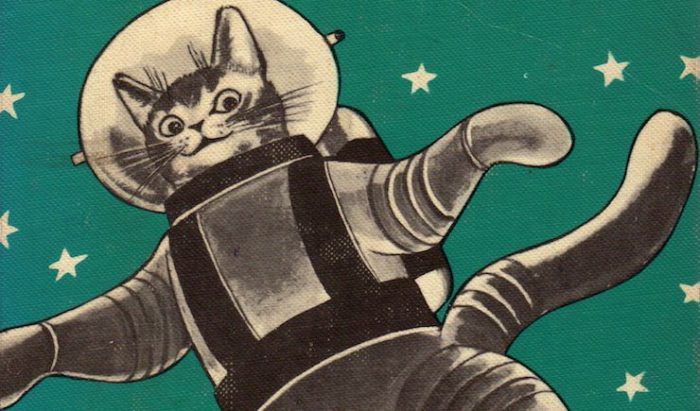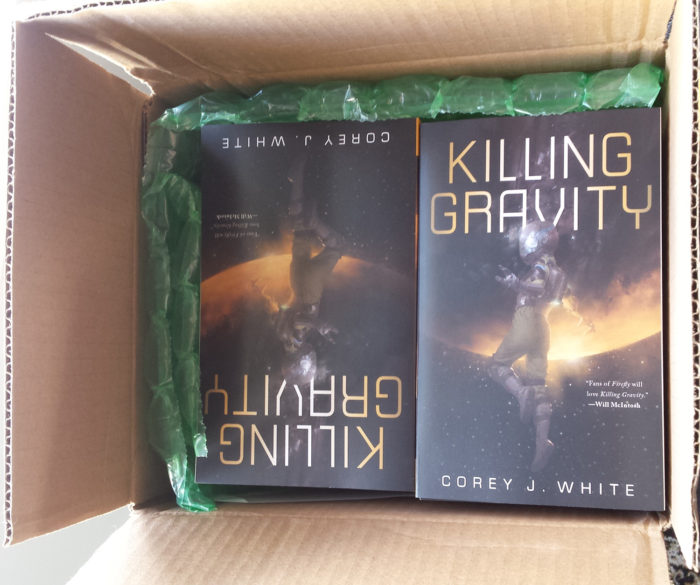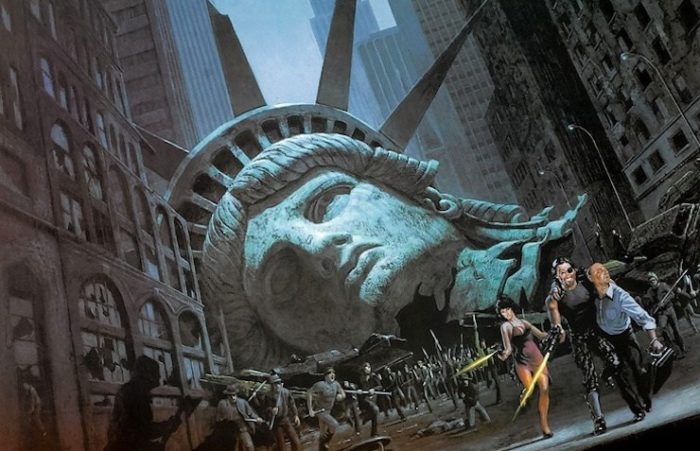Recently I was interviewed by Alasdair Stuart over at Tor.com. Alasdair is behind Escape Artists (the family of SFFH podcasts which includes Escape Pod, Pseudopod, Podcastle, and Cast of Wonders), and the magazine Mothership Zeta… in other words, he knows his science fiction well. This comes across in the interview, with Alasdair asking a number of great, in-depth questions that gave me a chance to delve into a lot of the stuff that was going on in the background while I was writing Killing Gravity.
AS: What sort of aesthetic do these books have in your head? Is everything high tech and advanced, or we talking crunchy switches and Logan’s Run? I get a little of everything.
CJW: It’s definitely varied within the world, depending on a character’s personal preference, the level of tech they can afford, and environmental factors. I kind of think of it in terms of mobile phones—back in the day I could walk down the street, tapping out a text message on physical buttons without looking at the screen and the message would come out perfect, but if you try the same thing today with a smart phone, you either end up with a gibberish message, or you end up walking into someone/something. So as much as people want the Minority Report-style holographic interface, for certain people and/or at certain times, you need physicality. After all, in Minority Report, the fancy display is useless without the wooden balls laser-etched with premonitions.
Read the whole thing here.



